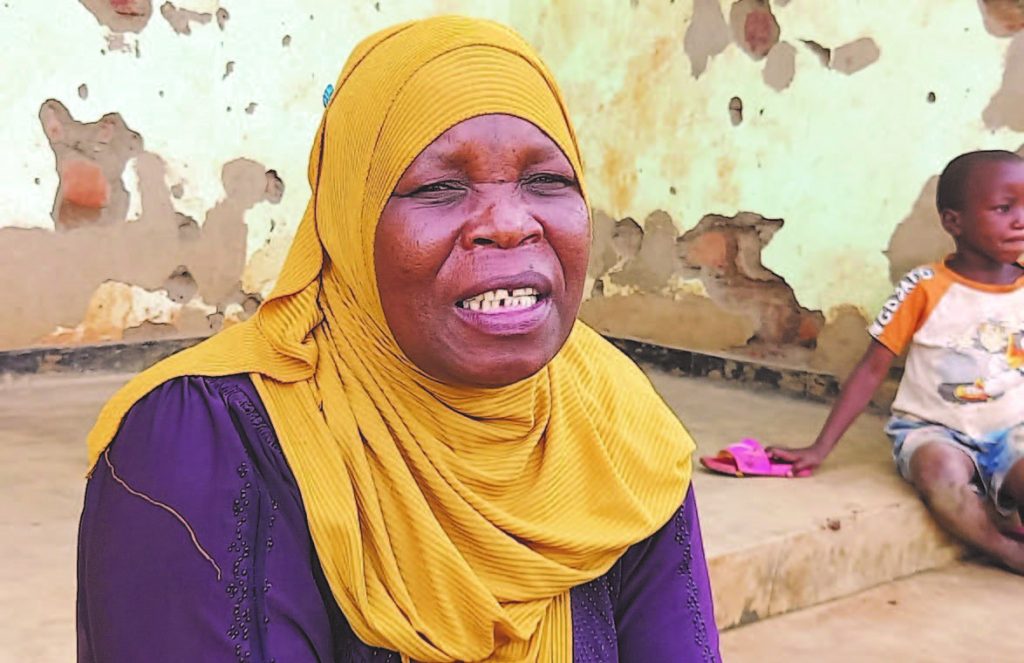‘Her future, her choice’
For decades, teen pregnancies week rampant in Balaka District partly due to low access to sexual reproductive and health rights (SRHR) services.
In Traditional Authority (T/A) Amidu’s rural locality, Sinthano Youth Club is working with support from Oxfam in Malawi to close the gap.

Its chairperson Afiya Nyenje credits Her Future Her Choice Project with strengthening SRHR among the youth, especially adolescents and young women.
“Since 2019, teen pregnancies and child marriages have been declining as many young people now demand SRHR information and services, including contraception,” he says.
Nyenje says the situation was worse before the four-year project funded by Global Affairs Canada to safeguard young people aged 10 to 24.
Oxfam in Malawi implements the project in partnership with Family Planning Association of Malawi (Fpam), Centre for Alternatives for Victimised Women and Children and Point of Progress in Balaka and Lilongwe.
The project included training of the youth in business management, ways to save and invest their earning and access to loans.
“Apart from better understanding SRHR issues, including where to access services, most of the youth have become self-reliant,” says Nyenje.
The 22 members of Sinthano Youth Club ventured in a communal beekeeping business. Periodically, they share the profits from honey sales, with each contributing K200 to a fund basket that guarantees them low-interest loans for business growth and hard times.
Additionally, individual members also run personal businesses capitalised by proceeds of honey sales.
Mayimuma Mapanga, 23, says the SRHR discussion that lace their youth club meetings, including business talks, have motivated most of the youth to open up to their parents about their sex and sexuality, which were taboo topics previously.
“Gone are the years when teen pregnancies and marriages were rampant because the youth did not know how their bodies work or where to get SRHR services they need,” he says.
Nearly half of girls in Malawi marry before their 18th birthday and about one in three get pregnant before reaching 19, according to the Malawi Demographic and Health Survey of 2015.
This dials up calls for youth-friendly efforts to guarantee access to SRHR services, including contraception, comprehensive sexuality education and critical sex-related information.
Group village head Kuntiyani of Balaka says the project empowered the youth to make informed decisions about their sexuality, including staying in school until their dreams come true.
“Now young people are aware of SRHR issues that elders previously discussed behind closed doors. As a result, more and more are completing basic education and going to colleges. As leaders, we are proud of them,” she says.
Kuntiyani and other chiefs support the implementation of the SRHR initiative to safeguard young people and their fragile futures. Among others, the traditional leaders ensure that youth leaders do not relent encouraging their peers to avoid risky sexual behaviour that fuel teen pregnancies, child marriages, school dropout rates and sexually transmitted infections, including HIV.
“We even forbid the youth from engaging in useless and risky activities instead of attending youth club meetings,” says Kuntiyani.
Namalolo Youth Group chairperson Esther Paipi says sharing SRHR challenges and solutions has made the youth aware of ways to fight rights violations and abuse, including gender-based violence.
“The project is more than just an SRHR initiative because the youth now identify and report any forms of abuse when they encounter one,” she says.
Fatima Jafali, a member of the group of 39, freely seeks sexual and reproductive health services they need at the nearest health facility.
Group matron Aisha Khalil says the youth reached have become more confident and ambitious in their daily dealings.
“They dream big and want to go further with their education. This is what we need for communityto development,” she says.
Fpam trained youthful volunteers who discreetly distribute modern family planning methods such as condoms among their peers.
Nelson Wahiya says the deployment of youthful community-based distribution agents have raised the demand for family planning methods, reducing teenage pregnancies in the process.
“The unmet need is dwindling because our peers access services they need with maximum confidentiality,” says the volunteer.
Oxfam in Malawi programme coordinator Rejoice Kankhande-Bonongwe is excited with the positive strides, including demand creation for SRHR services among the youth.
She says: “Since 2019, we have registered tremendous progress in various project goals.
“At the start of the project, only 47.3 percent of the youth were obtaining SRHR commodities, but now it has reached 81.4 percent. This means more young people are now flocking to health facilities to access SRHR,” she explains.
The change agents hold awareness campaigns and SRHR education sessions to excite the youth to demand vital services from health facilities, community-based volunteers and youth clubs.





